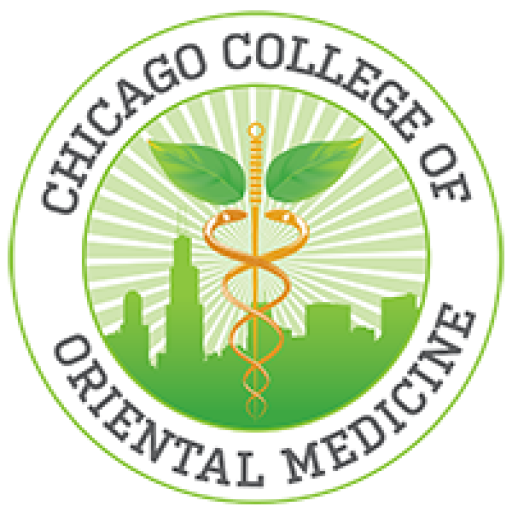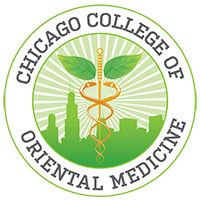
Codes of Ethics a CCOM Student must abide by
Student Conduct
Students at CCOM prepare themselves for health care professions, and all of the privileges and responsibilities inherent in such careers. It is expected that each student conducts themselves in a professional, mature, and respectful manner, both on and off campus. Students are expected to treat faculty, staff, and fellow students with respect. Furthermore, students are expected to abide by all legal and ethical standards of their professional and academic community. CCOM will not tolerate any deviation from these standards. Suspension or termination may result from any such violation.
The Chicago College of Oriental Medicine follows strict codes of ethics and expects its students to adhere to them at all times. CCOM firmly believes that healing cannot be achieved until all three; body, mind and soul are in balance and working in harmony. There are three codes that a CCOM’s Student must adhere to
- Chinese Hippocratic Oath by Sun Simiao
- Teachings of Sun Simiao
- Code of Ethics by NCCAOM
The Chicago College of Oriental Medicine’s teaching and practicing values are influenced by the great Sun Simiao.
Sun Simiao (simplified Chinese: 孙思邈; traditional Chinese: 孫思邈; pinyin: Sūn Sīmiǎo; Wade–Giles: Sun Ssu-miao; died 682) was a famous traditional Chinese medicine doctor of the Sui and Tang dynasty. He was titled as China’s King of Medicine (藥王/药王, Yaowang) for his significant contributions to Chinese medicine and tremendous care to his patients.
According to Sun Simiao in “On the Absolute Sincerity of Great Physicians,” often called “the Chinese Hippocratic Oath,” or called “Dayi Heart”, which is still a required reading for Chinese physicians:
Chinese Hippocratic Oath
“A Great Physician should not pay attention to status, wealth or age; neither should he question whether the particular person is attractive or unattractive, whether he is an enemy or friend, whether he is a Chinese or a foreigner, or finally, whether he is uneducated or educated. He should meet everyone on equal grounds. He should always act as if he were thinking of his close relatives.”
Golden Rule by Sun Simiao
Chicago College of Oriental Medicine’s students and practitioners must try to adhere to the golden rule, that Sun Simiao introduced to the world.
“凡大醫治病,必當安神定志,無欲無求,先發大慈惻隱之心。誓願普救含靈之苦”
“Whenever eminent physicians treat an illness, they must quiet the spirit and settle the will, they must be free of wants and desires, and they must first develop a heart full of great compassion and empathy. They must pledge to devote themselves completely to relieving the suffering of all sentient beings.”
— SUN SIMIAO(King of Medicinals, Beiji Qian Jin Yao Fang (“Essential Formulas for Emergencies [Worth] a Thousand Pieces of Gold”)
Code of Ethics by NCCAOM
National Certification Commission for Acupuncture and Oriental Medicine (NCCAOM) is a non-profit organization in the United States that advances the professional practice of acupuncture and eastern medicine by establishing and promoting national evidence-based standards of competence and credentialing. The cornerstone of the NCCAOM’s commitment to ethical business practices and professional conduct is its Code of Ethics. Every NCCAOM Diplomat and applicant pledges to abide by the NCCAOM Code of Ethics standards and procedures as a condition of NCCAOM certification and certification maintenance. Chicago College of Oriental Medicine strives to produce practitioners with great ethical and moral values, hence it is expected that students take the pledge for code of ethics as early as possible.
Code of Ethics
As a Diplomat of the NCCAOM®, I hereby pledge my commitment to the following principles:
Respect the rights, privacy and dignity of my patients and maintain confidentiality and professional boundaries at all times.
Treat within my lawful scope of my practice and training and only if I am able to safely, competently and effectively do so.
Allow my patients to fully participate in decisions related to their healthcare by documenting and keeping them informed of my treatments and outcomes.
Accept and treat those seeking my services in a fair and nondiscriminatory manner.
Render the highest quality of care and make timely referrals to other health care professionals as may be appropriate.
Continue to advance my knowledge through education, training and collaboration with my colleagues to maintain excellence and high ethical standards in our profession.
Support my medicine’s access to all people and its growth in the broad spectrum of U.S. health care.
Assist in the professional development and advancement of my colleagues.
Participate in activities that contribute to the betterment of my community

